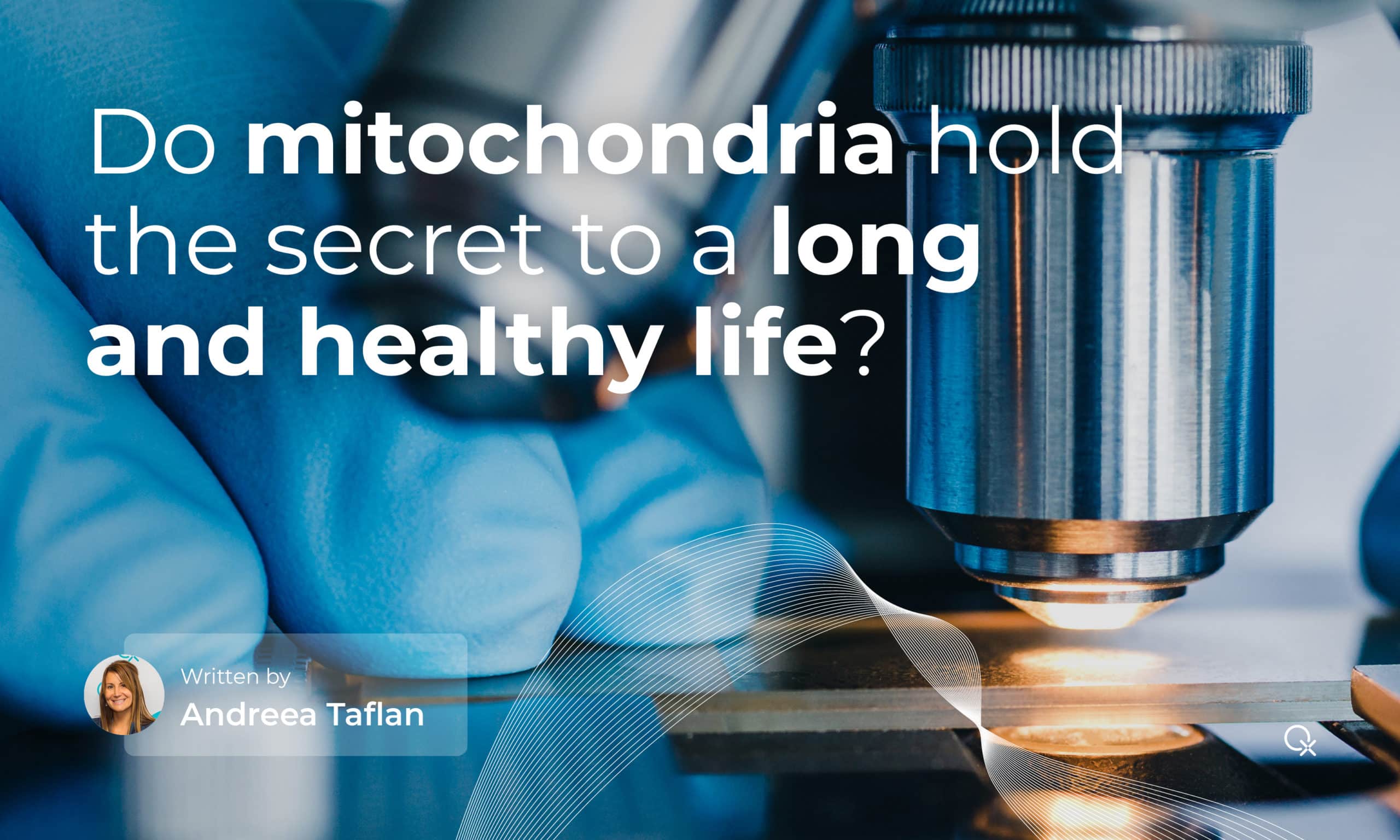
The human body consists of trillions of cells, which are the basic building blocks of life. To survive and stay healthy, cells rely on organelles (groups of complex molecules) that serve them like our organs help our body to function. Mitochondria are among the most important organelles for numerous reasons, which we will discuss below. Because they serve so many crucial purposes, chances are mitochondria even hold the ultimate secret to leading a long and healthy life.
Commonly referred to as the powerhouses or energy factories of the cell, mitochondria produce about ninety percent of the energy our cells need to survive. More specifically, they are responsible for turning the energy derived from food (protein, fats, carbohydrates, …) into chemical energy used for other biological processes within the body, maintaining life functions. Some of our cells, such as the ones in our muscles and liver, require more energy and therefore contain more mitochondria than others.
Because mitochondria are among the most vital of organelles, their malfunctioning can lead to various life-threatening diseases, making it all the more important for us to understand their role in the human life cycle.
One of the organs richest in mitochondria is the liver, with each of its cells containing approximately one to two thousand of these organelles. The liver, after all, plays a key role in the body’s metabolic functioning and has an accordingly high energy demand. The mitochondria in the liver are central to the chemical alterations that occur in the liver, where nutrients such as lipids, proteins, and carbohydrates are processed.
Unsurprisingly, well-functioning liver mitochondria are indispensable to keeping the liver healthy. Any changes in the balance of mitochondrial biogenesis (the cells’ increase of mitochondria) and degradation (the body getting rid of mitochondria which have become defective) can lead to chronic liver disease.
The study of the interconnectedness of the immune system and behavioral processes is called psychoneuroimmunology. The idea is that being exposed to stress affects the immune system’s responses. In return, the immune system’s responses affect our behavior. Ongoing research in this field shows that there is a connection between psychological stress and mitochondrial activity. Mitochondria play a critical role in stress adaptation and regulating the immune system; therefore, their importance regarding the interactions between the immune system and brain activity is evident.
However, more research is needed to determine the exact role of mitochondria in human stress responses.
The million-dollar question, then, remains: what impact do mitochondria have on life expectancy? There are countless life length determinants, and, as we have hopefully made clear by now, mitochondria are chief among them.
Experts agree on the possible adverse effects – liver disease, for example – of mitochondria not working correctly. Studies also show reduced mitochondrial content and a decline in mitochondrial activity, which emerges as we age and which is especially noticeable in skeletal muscle. What exactly causes this decline, however, is not yet certain.
Furthermore, age-induced changes can be detected on multiple levels in the expression of genes and the adherent response of mitochondria in the process of encoding mitochondrial proteins, highlighting the causal effects between ageing and mitochondria.
Up to this day, however, the exact relationship between ageing and mitochondria remains the topic of ongoing studies and discussions due to its complexity.
Mitochondria are known as the powerhouses of the cell, yet their use goes far beyond chemical energy production. Mitochondria play a vital role in the health of the liver, the human life cycle and our overall life expectancy, but their workings are so complex that further research is needed.
Our experts at QX World, too, feel it is essential to continue learning about mitochondria as a part of our goal of helping people become more conscious of their health and to take their health into their own hands. Our biofeedback devices QUEX ED and QUEX S serve that very purpose: they provide feedback on overall bodily functions and create personalized lifestyle programs accordingly.
Want to make your good health a (more) conscious choice? Read more about biofeedback or find out instantly how a biofeedback session works.
About Andreea Taflan
Andreea Taflan is the CEO and a co-founder of QX World. She studied Business Management and Marketing and has a master’s degree in Public Relations and Communications. In 2005, Andreea was appointed the right hand of the original developer of biofeedback technology and since 2012 she has taken the lead in further developing the technology. Currently, she leads both the software and hardware department at QX World and is considered one of the top experts in the field of biofeedback.
+1 (989) 681-1063
+1 (856) 322-8589